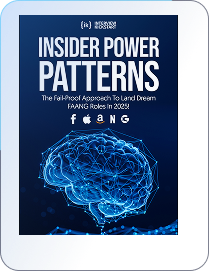If you are preparing for an upcoming interview in which C++ will be required, you should review the most frequently asked C++ interview questions and answers. Despite being one of the oldest programming languages, C++ is still widely used by developers to create software and applications. It is one of the most widely used programming languages in game development.
Top tech companies, including Evernote, LinkedIn, Microsoft, Opera, NASA, and Facebook, use C++ owing to its reliability, performance, and the wide range of contexts in which it can be used. Continue reading to get familiar with the frequently asked C++ interview questions and answers around programming theory and coding problems.
In this article, we present some C++ interview questions for experienced developers.

If you are planning to get started with your C++ interview preparation, the following question will help you revise the core concepts and ace your upcoming interview.
The following prominent advantages of C++ make it software developers’ choice:
Learn how C++ is different from the C programming language.
This is one of the most commonly asked C++ interview questions and answers. The area wherein the variable is active is referred to as scope. Thus, you can declare, define, and use the variable in scope. C++ has the following two types of scopes:
â€

â€
C++ supports the following types of tokens:

â€
The assignment operator ( = ) assigns the value to the variable and is sometimes used in complex equations.
The ‘equal to’ operator ( == ) is an equality operator used to compare two values. It returns true if they are equal; else, it returns false.
Comments are the source code that the compiler ignores, and they are not a part of programs. The purpose of comments is to inform the programmer about additional information. It provides details about the source code. There are two types of comments in C++:
It is one of the most important C++ interview questions and answers concepts. You can contain an object of one class into another, and that object will be a member of the other class. This relationship between classes wherein one class contains the object of another class is referred to as containership.
The process of hiding elements of a program’s code from object members is called data hiding. It ensures controlled data access and objects integrity. It also prevents unintentional or intended changes to the program.
The C++ getline() is a standard library in-built function and it is defined in the <string.h> header file. It allows accepting and reading single and multiple lines.
Design patterns are reusable solutions that you can apply to recurring Object-Oriented Design problems. Singleton design patterns fall under the category of Creational Design Patterns. This pattern helps design a class with a maximum of a single instance at any time. It cannot be instantiated further.
The concept of a singleton design pattern can be applied to creating a logger or hardware interface class.
The following operators cannot be overloaded:
RTTI stands for Run-time type information. This mechanism gives information about an object’s data type at runtime. It is available only for classes that have at least one virtual function. You can determine the type of an object during program runtime execution.
An array of elements wherein many elements have a value of zero is called a sparse matrix. For instance, if you are given a matrix with several elements and the number of zeroes is more than half the elements of the matrix, then it is a sparse matrix.
Smart pointers are employed in garbage collection to ensure no memory leaks. If you use smart pointers, you need not call delete for any memory allocated dynamically as it is automatically deallocated. You can implement smart pointers in C++11 and higher versions. C++11 has the following four kinds of smart pointers:

â€
This pointer: The ‘this pointer’ is present in the member functions of every object. It points to the object itself and can be used to access the object’s data.
Void pointer: A pointer that has no data type associated with it is called a void pointer. You can assign any type of pointer to a void pointer, but the reverse isn’t true unless you use it as follows
str=(char*) ptr;.
A virtual function is a member function in the base class that can be redefined in a derived class. It can be declared using the virtual keyword. On the contrary, a pure virtual function has no implementation. It has no body and is declared by assigning 0.
Yes, you can call a virtual function from a constructor. However, the behavior differs in that case. When you call a virtual function, the virtual call is resolved at runtime. The virtual machine does not work within the constructor.
Take a look at some more C++ Interview Questions and Answers to prepare better.
You should be prepared for advanced C++ interview questions and answers if you are applying for senior roles. Although interview rounds of senior positions have mostly programming and behavioral questions, you will also be asked a few advanced theoretical questions. Take a look at this list of questions to brush up on the crucial C++ concepts.
Coding rounds are often a part of technical interviews wherein you must solve problems on data structures and algorithms. To ace C++ programming interview questions, you must have a good command of the language and diligent practice. The following topics are important for coding questions:
Here are a few C++ coding questions for practice:
You can check out the Problems Page for more C++ interview questions and answers to practice for technical interviews.
Q1. How do I prepare for C++ interview questions and answers?
You should begin your preparation by brushing up on core programming concepts and move on to practicing programming problems. You can also enroll in mock interviews and practice mocks with hiring managers who are closely acquainted with the FAANG companies’ interview process. Learn important tips on how to prepare for C++ interviews here.
Q2. What topics are important for C++ interview questions and answers?
You should be prepared for questions on crucial C++ concepts, including methods, events in C++, lists, inheritance, polymorphism, abstraction, data binding, and commands to crack the most challenging C++ interview questions and answers.
Q3. Can I use C++ for the FAANG company’s coding interviews?
Yes, you can use C++ in coding interview rounds. Top tech companies, including Microsoft, LinkedIn, PayPal, and Amazon, list C++ as one of their main programming languages for coding interviews. C++ has become one of the most sought-after skills in modern developers at FAANG+ companies.
Q4. What positions am I eligible for with C++ programming skills?
You can make a career in the following roles with C++ programming skills: Junior/Senior Programmer, Software Developer, Quality Analyst, Game Programmer, Software Developer Engineer, C++ Analyst, and Programming Architect.
Q5. What is the average salary of C++ developers in the US?
The average base salary of a C++ developer is $116,987 per annum in the United States. You can expect a higher salary in US cities like Orlando, New York, and San Francisco (Source: Indeed.com). The salary increases according to your experience and based on your performance. The higher the experience, the higher the salary will be.
Preparing for technical interviews, especially the challenging ones, steers you on the path to becoming a better software professional with improved coding, problem-solving, and behavioral skills. You become more confident at taking and cracking interviews.
At Interview Kickstart, we’ve trained thousands of coding engineers, software developers, and data scientists to land dream offer at the biggest companies, including Google, Facebook, Amazon, Apple, Microsoft, and Netflix. Check out some reviews to know more.
Sign up now to uplevel your career!
â€
â€
Attend our free webinar to amp up your career and get the salary you deserve.

693+ FAANG insiders created a system so you don’t have to guess anymore!

100% Free — No credit card needed.

Time Zone:






Get your enrollment process started by registering for a Pre-enrollment Webinar with one of our Founders.

The 11 Neural “Power Patterns” For Solving Any FAANG Interview Problem 12.5X Faster Than 99.8% OF Applicants
The 2 “Magic Questions” That Reveal Whether You’re Good Enough To Receive A Lucrative Big Tech Offer
The “Instant Income Multiplier” That 2-3X’s Your Current Tech Salary

The 11 Neural “Power Patterns” For Solving Any FAANG Interview Problem 12.5X Faster Than 99.8% OF Applicants
The 2 “Magic Questions” That Reveal Whether You’re Good Enough To Receive A Lucrative Big Tech Offer
The “Instant Income Multiplier” That 2-3X’s Your Current Tech Salary
Just drop your name and email so we can send your Power Patterns PDF straight to your inbox. No Spam!
By sharing your contact details, you agree to our privacy policy.
Time Zone: Asia/Dhaka

We’ve sent the Power Patterns PDF to your inbox — it should arrive in the next 30 seconds.
📩 Can’t find it? Check your promotions or spam folder — and mark us as safe so you don’t miss future insights.
We’re hosting a private session where FAANG insiders walk through how they actually use these Power Patterns to crack interviews — and what sets top performers apart.
🎯 If you liked the PDF, you’ll love what we’re sharing next.
Time Zone:

